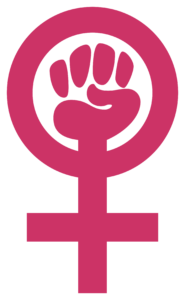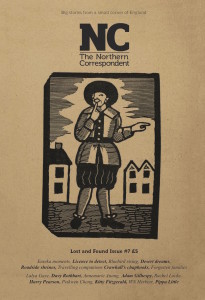The fight for women’s liberation is still needed – and we can take pride in the women of our region who are in the vanguard of this fight, says Julie Scanlon
Pronouncements of the “death of feminism” have surfaced regularly since the 1950s – Piers Morgan is just the latest to declare it. But if feminism is dead, we must be living in some kind of patriarchal afterlife.
Forty years ago this month, the north east held feminism’s centre stage when 1,500 women from around the UK gathered in Northumberland for the seventh National Women’s Liberation Conference. One of nine such conferences held around the country during the 1970s, it helped shaped priorities not just for the Women’s Liberation Movement but for women’s lives nationally.
Even today, the legacy of those conferences underpins today’s feminist movement, not least in the context of the austerity measures that impact on women and minority groups hardest, particularly in our region.

For three days in April 1976, the otherwise quiet college campus of Northumberland College in Ponteland – was the setting for national discussions. Men ran the crèche (where does this happen now?) while women debated the future of the women’s movement and how best to organise and strategise locally and nationally. Women discussed sexism in the media, unequal shares in housework, caring responsibilities and NHS care – topics just as likely to spring from the pages of our newspapers and websites in 2016.
It is frustrating that the fight for women’s liberation is still needed – and we can take pride in the women of our region who are in the vanguard of this fight. The north east is home to the longest running rape crisis centre in the country, run by women for women. In 2013, the North East Women’s Network presented evidence in Geneva to the UN committee on the Convention on the Elimination of Discrimination Against Women. At a time when specialist services and funding are increasingly scarce, Newcastle’s women’s centres such as the Angelou Centre and West End Women and Girls Centre provide essential grassroots support for local women. And from 2012-14, Newcastle was host to the North-East Feminist Gathering.
I came to Newcastle just 11 years ago, but I’m proud of this region’s feminist heritage. On a Suffragette Walking Tour by Newcastle City Guides, I learned that the suffragettes met in Fenwick’s tea rooms to plan their actions. I discovered the Women’s Social and Political Union on Blackett Street, found out that they disrupted church services and heard about their infamous arson attacks on Kenton railway station and Heaton Park pavilion. There was a failed attempt to blow up Heaton railway station too.
Feminism is frequently mocked, but without it, women in this country wouldn’t have the right to own property, vote, expect equal pay for equal work, work after marriage, have access to birth control and abortion, not be raped within marriage, get a credit card or simply appear on a banknote. The list could go on.
When feminists speak out today, they risk lampooning and threats just as they did in the 1970s, or the 1920s and earlier. The realities of what feminists have to say, whether about violence against women or the gender pay gap, fracture the illusion of equality which some people like to believe we have attained. Misogyny endures and the death of feminism will only come once patriarchy is dead and buried.
Julie Scanlon is senior lecturer in contemporary literature, gender and sexuality at Northumbria University and an organiser of the Festival of Feminist Ideas and Actions.
Tell us your views in the comments section below – by clicking on the little speech bubble.
(Views expressed on our website and in our magazines and emails are not necessarily endorsed by The Northern Correspondent.)
Subscribe to our weekly email:
Buy our latest magazine:

